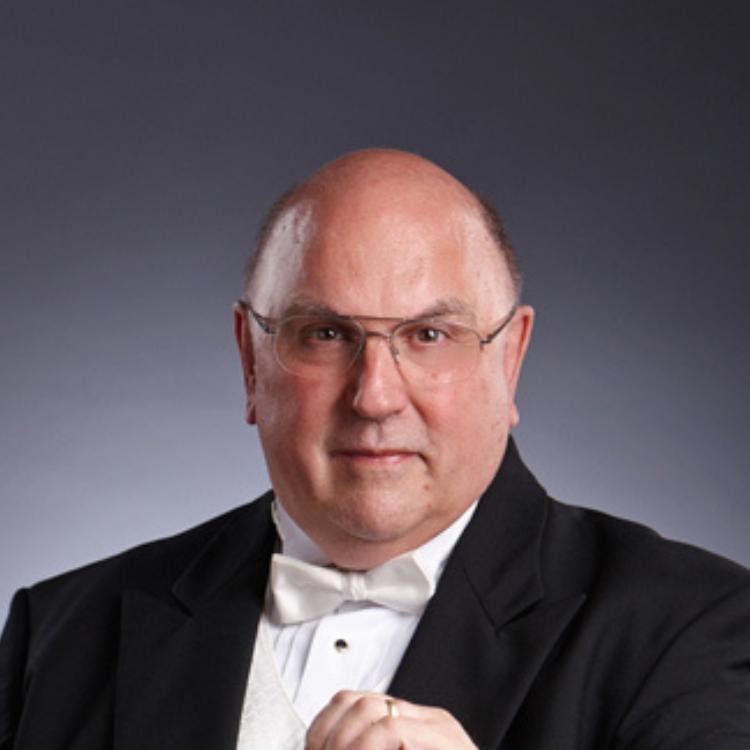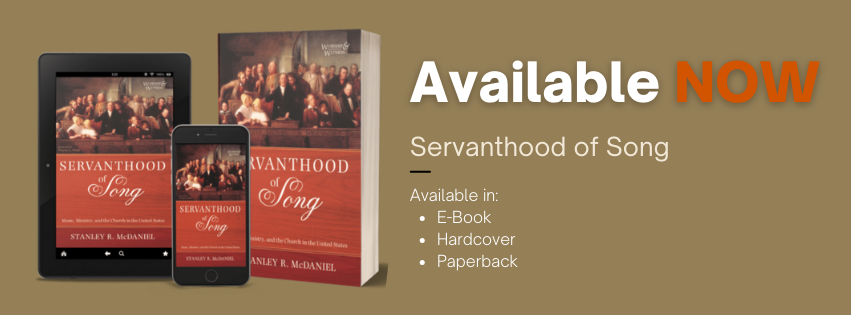Your cart is currently empty!

No. 14 – A “Servanthood of Song”
Let this mind be in you, which was also in Christ Jesus: Who, being in the form of God, thought it not robbery to be equal with God, but made himself of no reputation, and took upon him the form of a servant, and was made in the likeness of men, and being found in fashion as a man, he humbled himself, and became obedient unto death, even the death of the cross. [Philippians 2:5-8, KJV]
The title, “Minister of Music” and variations of it such as “Director of Music Ministries”, have been around for years. More recently, the contemporary church has been using titles like “Worship Pastor”. I have advocated the use of such titles because I believe they more accurately describe what a church musician does than “choir director”, “organist”, “music director”, and the like.
But what are the career differences that make such a distinction necessary? So much has been written about the nature of ministry by theologians ( I am not one!), but ministry in the religious sense is a generalized term for “a calling to serve”. The hierarchical nature of denominations has reinforced the misconception that the words minister and ministry refer exclusively to those ordained to preach and administer the sacraments. The Greek word for minister, however, diakoneo, means simply to serve whatever one’s calling may be. Robert Hampshire, in Christianity Today, explained uses Acts 6: 1-7 to show that ministry could be anything from preaching the Word to waiting tables! The Ministry of Music is then a calling and a profoundly important one in the life of the church. To delve any deeper into the ramifications of being a minister of music in the church, I find it best to resort to two Biblical metaphors – the “shepherd” and the “servant”.
The Shepherd
The church, I feel, will always be in desperate need of shepherds, skilled in music but committed above all to the welfare of their flock. This is the image we see beautifully described in the words of Jesus as quoted in the gospel of John. The musical and theological landscape in the 21st century is complex and filled with hazards. Like the Middle Eastern shepherds of old, the minister of music is tasked with lovingly guiding those in his or her charge through rocky terrain. And, be there no mistake, each flock is unique in its needs. As Jesus makes it clear, the music minister/shepherd must know and love his or her flock in all its uniqueness to effectively lead.
The church is neither a museum, a concert hall, or a venue for rock concerts. In a museum, a priority is given to preserving items of historical significance. Unlike a museum, hymns, anthems, or even entire liturgies must continually justify their worth as vehicles for active, vital, and engaged worship empowered by the Holy Spirit. In the concert hall, rock venue, or collegiate music program, music is chosen for its artistic worth, its educational or entertainment value. Certainly, there are commonalities between the church’s musical needs and those of secular culture. Worship music in the church must achieve a balance, valuing artistic excellence and being respectful of tradition, while also being inclusive enough to meet the spiritual needs of far more diverse congregations than existed in ages past.
The rise of the megachurch, the exodus of thousands from the membership rolls of mainline churches to non-denominational bodies, and the growing influence of contemporary Christian worship practices across denominational boundaries has been a wake-up call. Clergy, congregants, and church musicians in mainline Protestantism must re-visit basic questions about worship. What is working – and what is NOT working in our worshipping communities? Is evangelism a priority in our worship practice, or should it be? Do we view worship ideally as a Holy Spirit-enabled encounter with God ? If so, is that happening for the community on a regular basis?
The phenomenal growth of megachurches has forced upon mainline Christianity a reconsideration of the roles of professionalism, ‘musical excellence’ in worship, and the pros and cons of generationally-focused evangelism. The idea that worship forms needed to be overhauled to meet the needs of coming generations was as old as the megachurch itself. Robert Schuller, founder of California’s Crystal Cathedral, wrote in 1976, “Many churches are so dignified they’re dull! The music is dull, the messages are dull, the architecture is dull; there is no excitement in the air! The worship service might be described as sleepy, quietly meditative and a perfectly tranquilizing arrangement – guaranteed to produce yawning and boredom.” A few years later, Bill Hybels further refined Schuller’s ideas focusing on the need for worship to approximate the professional standards of secular productions and recordings. “The result of this commitment [to professionalism] is that Harry comes to the weekend services knowing that he is going to see a professional production. He won’t have to listen to a voice that is breaking while trying to hit a high note or have to see inept actors.” Rick Warren, author of the “Purpose Driven…” series of books and pastor of Saddleback Church in Lake Forest, California , declared that church growth could only happen if churches tailored worship to the specific segment of the surrounding population they wished to attract. That, he believed, should be the principal element driving choice of worship music: “Music is a divisive issue that separates generations, regions of the country, personality types, and even family members… You must decide who you’re trying to reach, identify their preferred style of music, and stick with it. You’re wasting your time if you’re searching for a style of music that everyone in your church will agree on.”
A more recent observer, the sociologist, Ibrahim Abraham of the Australian National University, has provided us with an excellent study of music in the Hillsong megachurch in Cape Town, South Africa.
A service at Hillsong church’s Century City campus in the northern suburbs of Cape Town may, at first, seem like a chaotic or even profane event. Secular pop music blasts from the sound system before the service begins, and dozens of excited adolescents rush to the front of the stage as soon as the light show begins, welcoming the worship band, which features around a dozen musicians. As the music begins, they imitate the onstage action; not merely clapping and singing along to lyrics of the Hillsong worship songs they have learned by heart, but dancing and jumping in unison with church musicians who approximate pop stars in their dress, and the devotion they can attract from young congregants. . . Perhaps the most commented upon feature of Hillsong churches’ youth-focused services and ministries the world over is their replication of contemporary musical, fashion, and design aesthetics.
Abraham’s research touches on both issues: musical excellence and generationally-focused worship. He points out that the success of Hillsong worship is driven in large part by the extraordinary popularity of Hillsong recording artists, worship songs by Geoff Bullock and later Darlene Zschech, and the highly stylized recordings which brought that music to a world-wide audience. As Abraham points out, a major focus of Hillsong worship is to recreate in real time the energy and spirituality of that music for young people. While having the energy-infused feeling of a rock concert, worship is a carefully choreographed and acoustically sophisticated experience striving for the pristine perfection of mass-produced Hillsong digital track.
Where worship is concerned, conditions which once we might have disregarded now must be pondered by Christians of every stripe as we move forward in the 21st century. Church musicians, in particular, must engage in the conversation, and I believe this to be particularly true for the thousands part time organists and choirmasters whose livelihood depends on work beyond the sanctuary, This is not a “one size fits all” world we live in. It falls to the church musician to learn how best to minister to the community he or she serves, doing so with love, flexibility, and integrity. A few issues we all need to ponder:
1. The line between sacred and secular in church music has become increasingly blurred in recent decades. The co-opting of White and Black spirituals and gospel tunes by popular recording artists has played a role in this as has the gradual acceptance of pop idioms in the music of traditional mainline churches. Most influential of all, of course, is the stylistic embrace of pop idioms within Contemporary Christian worship practice. All of this reflects a troubling commercialization of church music Compositional style per se, I would suggest, should not determine appropriateness for use in worship. Musical and theological integrity, however, should be.
2. In regard to worship, the task before the church musician as with anyone involved in ministry must be facilitating full congregational participation – not as mute spectators but as fully engaged worshippers. Unfortunately, hard to fathom worship practices, unfamiliar songs and hymns are a major turn-off to worship visitors. Church musicians who are knowledgeable and passionate about all aspects of the worship experience are often in the best position to teach and make a difference in this most important area of church life.
3. The role of teacher: As circumstances require, I strongly believe church musicians should be equipped to teach, not only about musical subjects, but about all aspects of worship. A routine aspect of my work with choirs has been to address the theological rationale for the ordering of worship as well as individual elements. As singers become aware that what we do each week has profound meaning, they become perceptively more engaged. Teaching and leadership in the area of congregational singing is of critical importance. I believe deeply that full engagement in congregational singing is the best gauge of congregation’s worship health, and the planning for and leadership of congregational singing by church musicians will be a determining factor for success in this area.
4. A word to choirmasters, worship team leaders, and those the directing other kinds of ensembles: For many of the musicians in your care, you ARE the church. You have a pastoral ministry. I am not talking about the occasional birthday or sympathy card, but modeling Christ in all you do. It’s a tall order!
5. Sacrifice: Successful church musicians – whatever the denomination or worship style – are able to do what they do because of years of training as singers, instrumentalists, or conductors. As an essential part of that training they were encouraged to aspire to the highest musical standards. In a word – perfection. The burden successful church musicians must carry is finding a compromise between that standard of perfection and the call to minister. That requires sacrifice. Performance, artistic integrity, musicality, technique, and a whole range of other issues may be legitimate concerns, but the far overriding focus of the church musician must be worship and, right below that, the shepherding of the community being served.
The Servant
Taken as a whole then, the church musician is called to be much more than performer, conductor, or keyboardist. Of all the metaphors I have encountered on the role of minister, the one I like best is “servant”. As a conservatory-trained musician I was privileged to be mentored by incredible musicians and teachers. Like my classmates, I spent interminable hours practicing to achieve the highest level of performance of which I was capable. Realizing the intent of the composer as put forth on the printed page was always paramount. But as it became clear that my calling was music ministry, a change in focus was called for. It was never a matter of setting aside the musical foundations I had received at the conservatory, but to accept that my priority now was to serve. That meant understanding and embracing the community I had been called to, knowing how best to comfort, serve, and lift them up. With that realization, I found myself, while still committed to the struggle for musical excellence, open to the movement of the Holy Spirit in a SERVANTHOOD OF SONG!
Best wishes and Peace,
Stan McDaniel



Leave a Reply